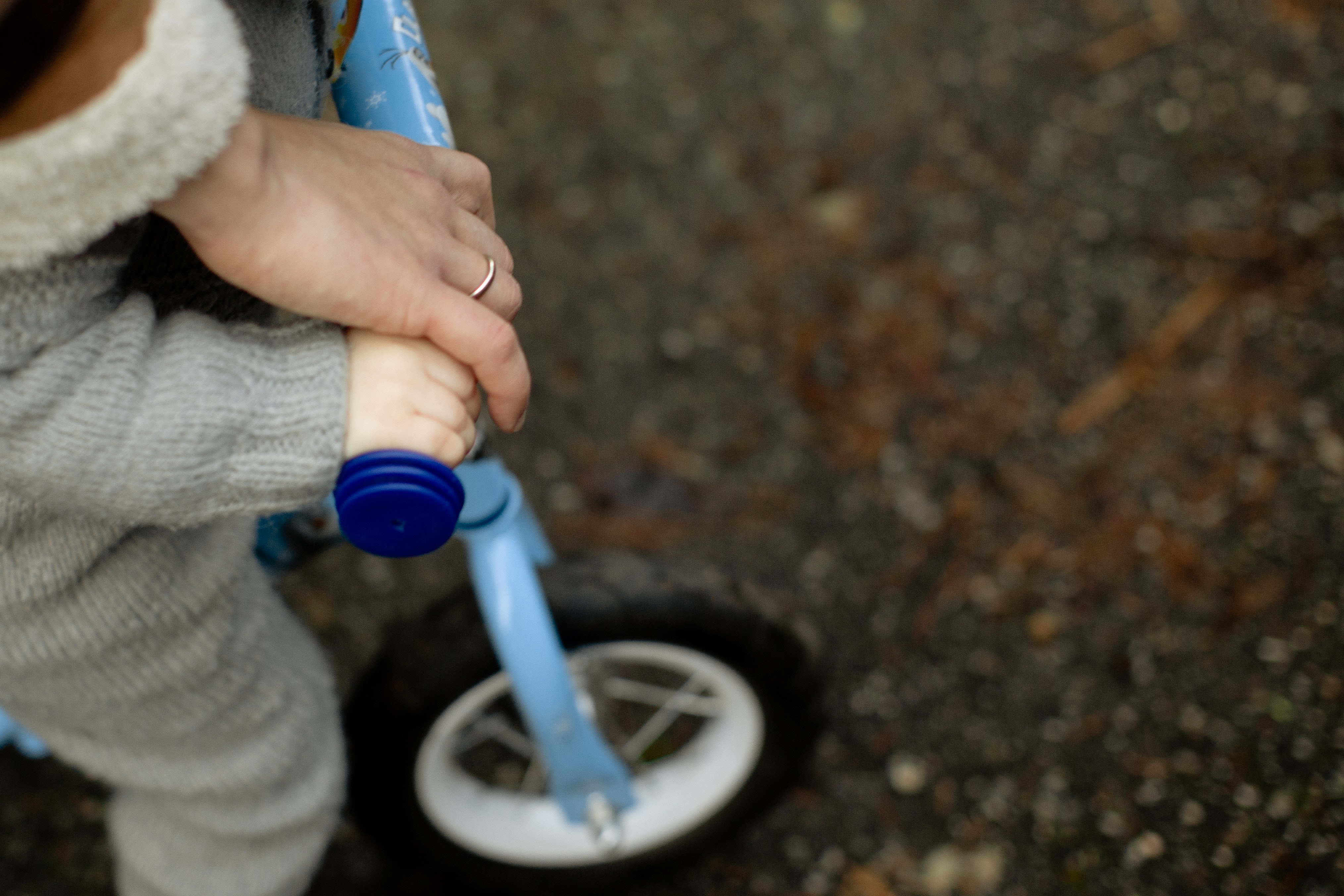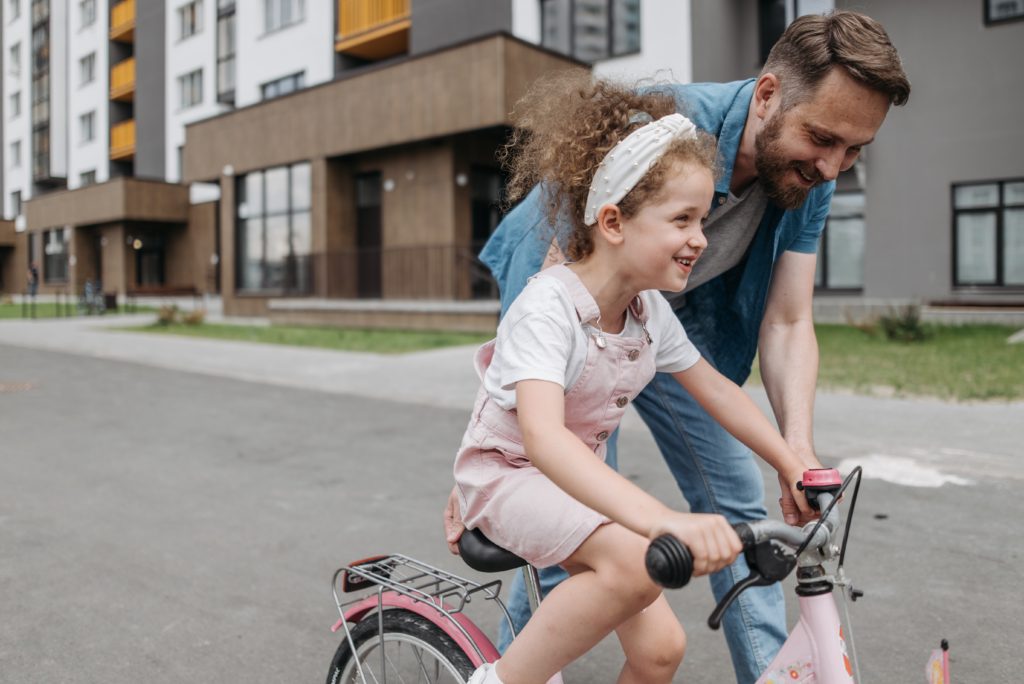By Neal B. Jeppson, San Antonio Center for Young Adults
Lessons Learned
I just finished teaching my last child to ride a bike. It’s been something that I’ve looked forward to and dreaded all at the same time. Not only does learning how to ride a bike test the relationship between the learner and the teacher; it also magnifies human weakness on both the part of the rider, as well as the one doing the teaching. So why do we insist on inflicting these types of experiences on ourselves and others? We do it because after all of the tear filled moments, the scrapes have healed and fears are overcome, a reward that can rarely be found in other experiences awaits for both teacher and the learner.
So many lessons are gained on a little bike, rolling on hard concrete, with a young parent and a semi-trusting child. For me, it has been a classroom of why human weakness is so critical for me and my family’s development in life. It has become what I call, The Parable of the Invisible Bike Coach.

The Invisible Bike Coach
Imagine what it would be like if we didn’t experience weakness in this life. It would be like learning to ride a bike with the help of an invisible bike coach. In this scenario, the rider would simply mount up and never sense any imbalance. The coach, of course, would still be there, holding the bike steady but the rider would have no idea that any one else was helping them along.
“This is easy!” the rider exclaims as they begin peddling. As they continue, the invisible bike coach walks silently behind the bike, fingertips pressing into the seat, steadying the rider. Sometimes the invisible bike coach may even run behind the bike, gently pushing it to make it go faster.
Gradually the rider starts to get the hang of it and the invisible bike coach notices moments when he is able to lessen his grip on the bike seat. The rider, unaware of any additional support or even the need for help, acknowledges the ease of the challenge and recognizes that they are just “really good at this bike-riding thing.” Soon the invisible bike coach lets go completely and the rider heads off into the sunset.
In this scenario, there’s no falling, no scrapes and no frustration. Only the joy of riding. Sounds good, right?

Strength Found in Weakness
When learning to ride a bike, there are lessons that can only be learned if the rider understands this principle: Weakness presents an opportunity for growth. This lesson is more important than just how to properly bandage a scraped knee after falling off a bike. It’s perhaps even more important than developing grit from having to pick oneself up after a fall. Recognizing weakness allows the rider to determine need. A need for help that they are unable to provide for themselves. Let’s consider what other opportunities for growth the rider could have if they were aware of the coach’s presence and his assistance. Continue reading “The Parable of the Invisible Bike Coach”